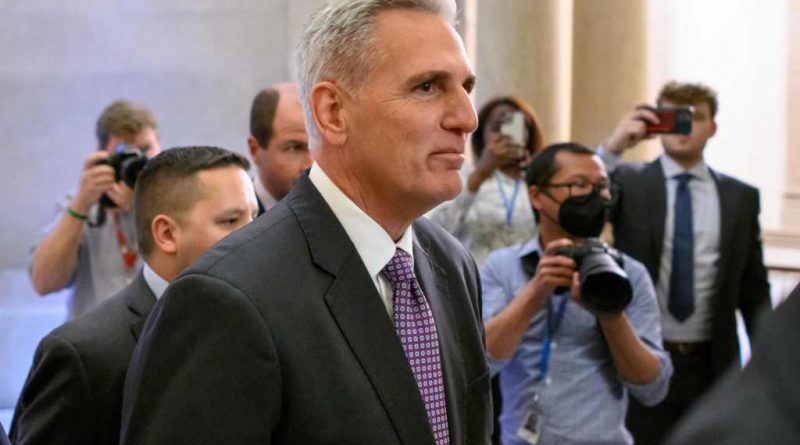House Passes Debt Ceiling Bill, Clearing A Hurdle To Avoid U.S. Default; Legislation Now Heads To Senate
The U.S. cleared another hurdle in avoiding its first default, as a the House of Representatives passed compromise legislation to suspend the debt ceiling.
Even as members of the far right revolted over the plan hashed out by Speaker Kevin McCarthy and President Joe Biden, the bill had more than enough votes for passage. It passed 314-117. Members on both sides of the aisle clapped when the final tally was announced, a rare instance of bipartisanship for major legislation.
The legislation now moves to the Senate where, despite the endorsement of Majority Leader Chuck Schumer and Minority Leader Mitch McConnell, it’s not entirely clear when the bill will come to the floor. Treasury Secretary Janet Yellen has told lawmakers that the U.S.has until June 5 to avoid default.
Related Story
Debt Ceiling Bill Advances In House After Clearing Key Committee — Update
Two of the vocal opponents of the legislation — Sen. Mike Lee (R-UT) and Sen. Rand Paul (R-KY) — want to present amendments but reportedly do not want to extend the process further. Lee was on the floor of the House before the vote, huddling with other opponents including Rep. Chip Roy (R-TX) and Rep. Andy Biggs (R-AZ).
Before the vote, McCarthy touted the bill as a reset on out-of-control spending. In the end, though, more Democrats voted for the bill, 165 members, than Republicans, 149 members.
The Congressional Budget Office estimated that the bill would cut deficits by $1.5 trillion over the next 10 years. The bill would suspend the debt ceiling until January, 2025. It also curbs increases in federal discretionary spending over the next two years, expands work requirements for food stamps and claws back some funding for the IRS, among other provisions.
Republican opponents blasted the bill as not going far enough to rein in spending, while Democrats opponents chided the deal as giving in to hostage taking, with vulnerable Americans paying the greatest cost.
It was clear earlier in the afternoon that the bill would have the votes, as members voted 241-187 on a procedural vote to start debate. There was a bit of drama, though, as dozens of Democrats initially withheld their votes. Enough supported the procedural move for it to pass.
House Minority Leader Hakeem Jeffries later slammed Republicans for needing the Democratic support just to get the legislation to the floor. “It appears that you have lost control of the floor of the House,” he said, noting that, by trying to block the legislation, 29 House Republicans “voted to default on our nation’s debt.”
Biden had initially insisted that he would not negotiate over raising and suspending the debt limit, arguing that it was non-negotiable to threaten the full faith and credit of the U.S. As the deadline approached, the administration entered into talks with House Republicans, resulting in the deal last weekend.
The White House has tried to sell the legislation to Democrats, upset with the cuts, by arguing that it could have been far worse and threatened parts of Biden’s agenda.
Must Read Stories
Danny Masterson Found Guilty On Two Counts Of Rape, Faces 30 Years In Prison
Won’t Face Sexual Assault Charges As L.A. DA’s Two-Year Probe Ends
Lower Overseas Take Leaves Break-Even In Question For Disney Pic
Labor Leaders Back DGA In Joint Statement; Picketers Halt J.Lo Pic For Day; More
Read More About:
Source: Read Full Article





